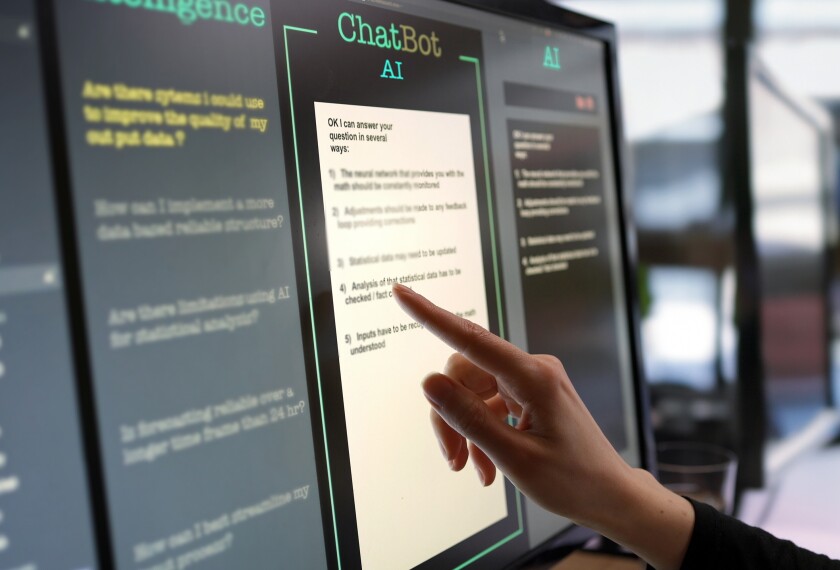Adam Cheyer, a co-creator of the popular voice assistant Siri, is paying closer attention these days to how artificial intelligence—especially ChatGPT—is affecting education.
Before ChatGPT, smart voice assistant technologies—such as Apple’s Siri, Amazon’s Alexa, and Google Assistant—were the most common tech tools people were using to have conversations with artificial intelligence. But now, the popularity of chatbots, like ChatGPT, are taking off, prompting all kinds of questions and concerns about the benefits and drawbacks of the new technologies.
Some teachers have embraced the technology behind ChatGPT, but most have not. Only 1 in 10 educators say they know enough about artificial intelligence to teach about it or use it to some degree in their work, according to a nationally representative sample of 1,156 teachers, principals, and district leaders surveyed by the EdWeek Research Center in May and June.
To help educators and students better understand the technology, the National School Boards Association recently turned to Cheyer to share his expertise about AI in a webinar.
Here are four key questions Cheyer answered from the webinar audience, which included school board members, district leaders, teachers, and students:
1. How can AI enhance the learning experience for students?
“This is going to be an important and amazing tool that both students and teachers can use to have a better learning experience,” Cheyer said. There are many ways to weave the tool into the educational experience, and “we’ll need to do this if we’re going to compete globally.”
One meaningful way to use AI is to personalize learning, Cheyer said, because “learning happens when people are interested.” For instance, if a teacher has an assignment with math word problems, they can use ChatGPT to change the word problem to something that includes a topic the student is interested in, he said.
The most important thing in education, in my opinion, is staring into the eyes of an inspiring human teacher. Even as AI gets smarter and smarter, it will never have that human element.
2. What AI policies and safeguards should school districts be considering?
“There’s no one-size-fits-all policy,” Cheyer said. “I think different communities, different schools, different classrooms will have to have different policies and that’s why it’s so important to begin that discussion.”
One policy districts should not embrace is a ban on using these AI tools, Cheyer said. Students will be using AI technologies when they get out in the real world and they need to know how to use it appropriately, he emphasized.
School districts should also think about setting acceptable use guidelines and updating policies about academic integrity, he added. One policy could be to allow students to use AI tools but ensure that they explain how they used those tools.
Cheyer told the audience to be cautious when using anti-cheating software programs that try to detect whether a student used AI for their assignment. Like other generative AI tools, those programs “are not entirely accurate” and can give “inconsistent results,” he said.
3. Will artificial intelligence replace teachers?
“The most important thing in education, in my opinion, is staring into the eyes of an inspiring human teacher,” Cheyer said. “Even as AI gets smarter and smarter, it will never have that human element.”
Teachers can’t be replaced, but AI tools can help people learn material as a compliment to what teachers are already doing, he said.
Students “need teachers to help balance the weaknesses of this technology—the inaccuracies, the biases that are sometimes placed in the data that these systems were trained on.” Teachers can help students develop the critical thinking skills they need to evaluate the quality of the information they receive from ChatGPT or other generative AI tools.
4. How can schools ensure that AI doesn’t widen already large equity gaps?
“The internet is such an incredible tool for learning,” Cheyer said. “We need to make sure everyone has access to it.”
Right now, if someone has access to the internet, they have access to the free version of ChatGPT. But the technology that makes the AI tool run is “very expensive” and companies will “want to monetize” it, so policymakers will need to make sure everyone has “free access to at least a baseline version of the technology,” he said.







